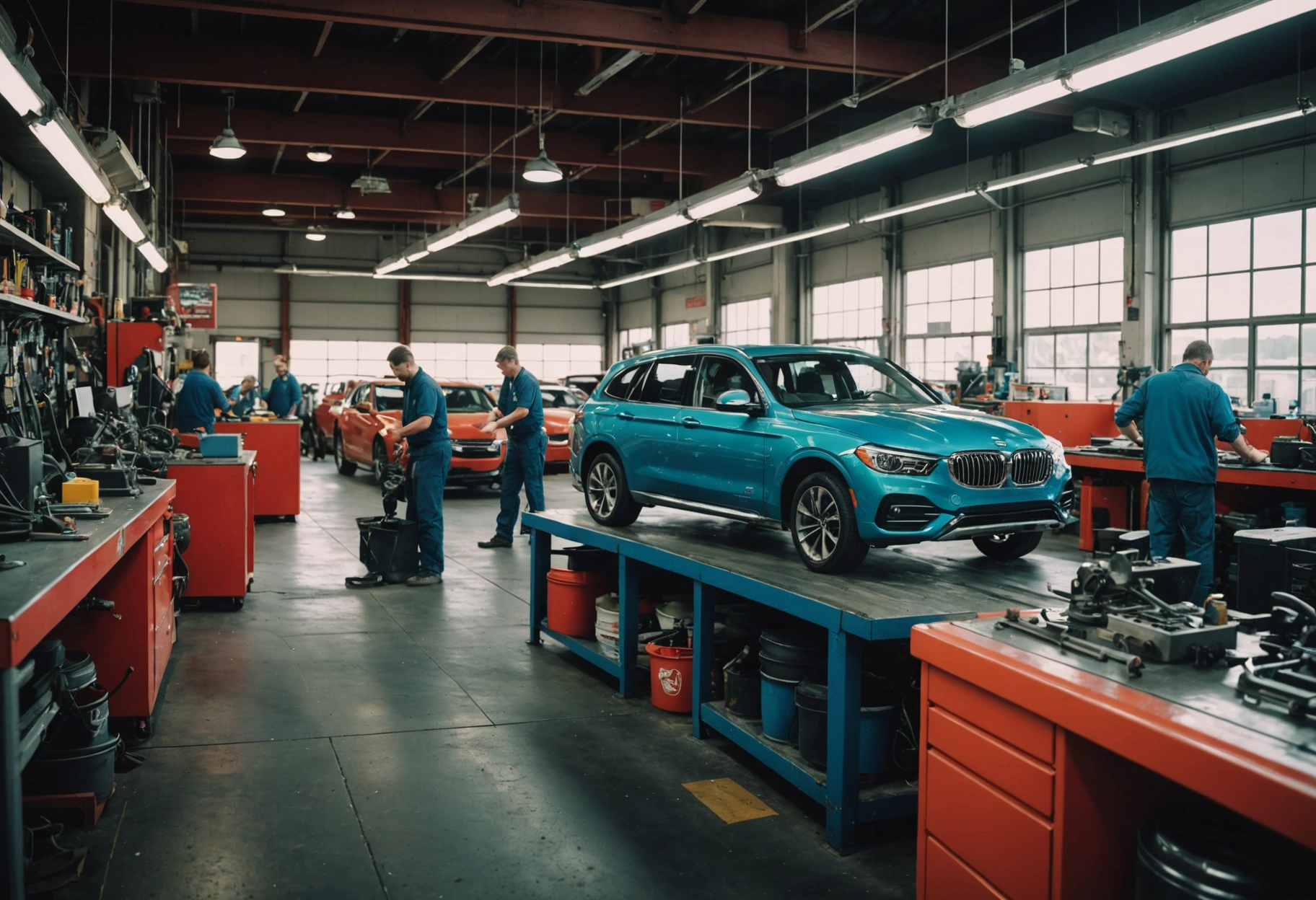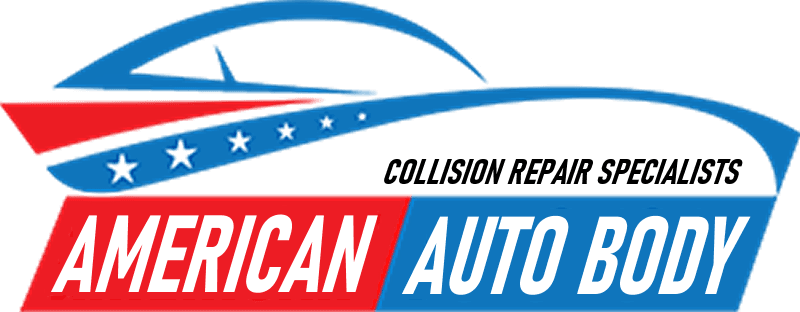Understanding the Role of Auto Body Shops in Your Insurance Claim Process
When you’re involved in a car accident, the aftermath can be overwhelming. From dealing with the shock of the incident to managing repairs and insurance claims, it can be a lot to handle. One key player in this process is the auto body shop. Understanding the pivotal role these establishments play can streamline your insurance claim experience, ensuring a smoother path to getting back on the road.
Let’s delve into the intricacies of how auto body shops interact with insurance claims, offering insights that can save you time, reduce stress, and potentially save you money.
The Initial Steps After an Accident
Immediately after an accident, safety is your top priority. Once you’ve ensured everyone’s well-being and reported the incident to the authorities, the next step is to contact your insurance provider. They will guide you on the subsequent steps, which often include selecting an auto body shop for repairs.
Many insurance companies have a list of preferred auto body shops, known as Direct Repair Programs (DRPs). These shops partner with insurers to provide streamlined services, often including pre-negotiated repair rates and quick processing. However, it’s crucial to know that you have the right to choose your repair shop.
Direct Repair Programs (DRPs): Benefits and Considerations
Choosing to work with a DRP can have several advantages. Repairs are typically faster, and the shop often handles much of the paperwork with the insurance company, reducing your administrative burden. Moreover, these shops usually offer guarantees on their work, providing peace of mind.
However, it’s essential to weigh these benefits against potential drawbacks. Some argue that DRP shops might prioritize cost over quality, using aftermarket parts instead of original equipment manufacturer (OEM) parts. Always inquire about the parts used and warranty terms before proceeding with repairs.

The Role of Auto Body Shops in Damage Assessment
Once your vehicle is at the auto body shop, the next crucial step is a thorough assessment of damages. This involves an initial inspection where visible damages are documented, and an estimate is prepared. This estimate forms the basis of your insurance claim and determines the repairs’ scope and cost.
Experienced technicians will look beyond the surface, uncovering hidden damages that could affect your vehicle’s safety and functionality. This comprehensive assessment ensures that all necessary repairs are identified, minimizing the risk of future issues. For a deep dive into the importance of vehicle safety standards, consult authoritative resources.
Negotiating the Repair Estimate with Insurers
After the damage assessment, the auto body shop will collaborate with your insurance adjuster to finalize the repair estimate. This negotiation process can be complex, as insurers aim to minimize payouts, while shops seek adequate compensation for quality repairs.
Understanding this dynamic can empower you to advocate for fair treatment. Familiarize yourself with the estimate details and ask questions about any discrepancies. Remember, your shop’s technicians are your allies, leveraging their expertise to ensure your vehicle is restored to its pre-accident condition.
OEM vs. Aftermarket Parts: Making Informed Decisions
A critical aspect of the repair process is the choice between OEM and aftermarket parts. OEM parts are made by the vehicle’s manufacturer, ensuring an exact fit and adherence to the original specifications. While often more expensive, they are typically covered by a more comprehensive warranty.

On the other hand, aftermarket parts are produced by third-party manufacturers. They can be a cost-effective alternative but may vary in quality and compatibility. It’s essential to discuss options with your auto body shop, considering factors like quality, cost, and warranty coverage. For further insights, explore detailed analyses of OEM versus aftermarket parts.
Insurance Payouts and the Repair Process
Once negotiations conclude, and the insurance company approves the estimate, you will receive a payout or direct payment to the auto body shop to begin repairs. Understanding the insurance payout process helps you plan financially, ensuring there are no surprises.
During repairs, maintain open communication with the shop to stay informed about the progress and any unforeseen issues. Reputable shops will keep you updated and seek approval before undertaking additional repairs. Educating yourself on the repair process can significantly enhance your experience, as detailed in resources like consumer guides on auto repairs.
Final Inspection and Vehicle Delivery
Upon completion of repairs, a final inspection is conducted to ensure all work meets quality standards. This step is crucial for verifying that your vehicle is safe and functional. Don’t hesitate to ask the shop for a walkthrough of the repairs, highlighting any areas of concern.
Once satisfied, you can proceed with vehicle delivery. Most reputable auto body shops offer a warranty on their work, safeguarding you against future issues related to the repairs. Understanding the warranty terms and maintaining records of the work done are advisable for future reference.
Empowering Yourself in the Repair Process

Navigating the insurance claim process following a car accident can be daunting, but understanding the role of auto body shops is a significant step towards empowerment. By choosing the right shop, staying informed about your rights and options, and maintaining open communication, you can ensure your vehicle is repaired efficiently and effectively.
Remember, knowledge is power. By arming yourself with information and leveraging the expertise of skilled professionals, you can transform a potentially stressful situation into a manageable and even enlightening experience. For more comprehensive information on handling auto insurance claims, explore in-depth resources like detailed guides on post-accident procedures.
Ultimately, the goal is to restore your peace of mind and get you back on the road, confident in the quality and safety of your repairs.
Additional Tips for Navigating the Auto Repair and Insurance Landscape
While the core aspects of dealing with auto body shops and insurance claims have been covered, there are additional tips that can further facilitate your journey. Being proactive and well-prepared can make a substantial difference in the outcome of your repair process.
Document Everything
One of the most crucial steps in managing your insurance claim and auto repairs is proper documentation. From the moment the accident occurs, start collecting evidence and maintaining records. Take photos of the accident scene, damages to all vehicles involved, and any relevant environmental factors. This visual evidence can be invaluable when negotiating with insurance companies or proving fault.
Keep copies of all correspondence with your insurer and the auto body shop, including emails, letters, and phone call logs. These records provide a clear timeline and can be referenced in case of disputes. For more detailed strategies on effective documentation, you might find expert advice on handling car accident claims beneficial.
Understand Your Insurance Policy

Before an accident occurs, familiarize yourself with your auto insurance policy. Understanding the coverage provided, including deductibles, liability limits, and exclusions, can prepare you for managing claims more effectively. Awareness of these details can also guide your decisions about repairs and out-of-pocket expenses.
If you’re uncertain about any aspect of your policy, don’t hesitate to contact your insurance agent for clarification. An informed policyholder is better equipped to make decisions that align with their financial and personal interests. Comprehensive resources on auto insurance basics can provide further insights.
Consider the Long-Term Implications
Beyond immediate repairs and claims, consider the long-term implications of your choices. For instance, opting for aftermarket parts may affect your vehicle’s resale value or performance. Similarly, the reputation of the auto body shop and the quality of their work can influence your vehicle’s longevity and safety.
Moreover, frequent insurance claims might impact your premium rates. Some insurers offer accident forgiveness programs that prevent your first at-fault claim from affecting your rates. Understanding these dynamics can help you make decisions that support your long-term financial health and vehicle satisfaction.
Building a Relationship with a Trusted Auto Body Shop
Having a trusted auto body shop on speed dial can be immensely beneficial, especially in emergencies. Building a relationship with a shop through regular maintenance and minor repairs can establish trust and ensure they prioritize your needs when larger issues arise.
When selecting a shop, consider factors such as customer reviews, certifications, and the quality of customer service. A reputable shop will not only deliver quality repairs but also provide honest advice and transparent communication. Explore comprehensive reviews and ratings on platforms like local auto repair services to identify potential partners.

Leveraging Technology in the Claim Process
In today’s digital age, technology plays a pivotal role in streamlining the insurance claim process. Many insurers offer mobile apps and online platforms that allow you to file claims, track repair progress, and communicate with adjusters digitally.
Utilizing these tools can enhance your efficiency and provide real-time updates. Additionally, some auto body shops offer digital estimates and photo-based damage assessments, further expediting the process. Embracing technology not only saves time but also provides a convenient and transparent experience.
Taking Charge of Your Auto Repair and Insurance Experience
The journey from accident to recovery can be fraught with challenges, but with the right knowledge and approach, you can navigate it successfully. Auto body shops play a crucial role in this process, and understanding their function within the insurance framework empowers you to make informed decisions.
By documenting every step, understanding your insurance policy, and considering both immediate and long-term implications, you position yourself as a proactive and informed participant in your vehicle’s repair and recovery. Moreover, building relationships with trusted professionals and leveraging technological tools further enhance your experience.
Ultimately, taking charge of your auto repair and insurance claim process not only ensures a more satisfactory outcome but also provides peace of mind, knowing you’ve done everything possible to protect your interests and restore your vehicle to its optimal state.
Need help with Understanding the Role of Auto Body Shops in Your Insurance Claim Process?

